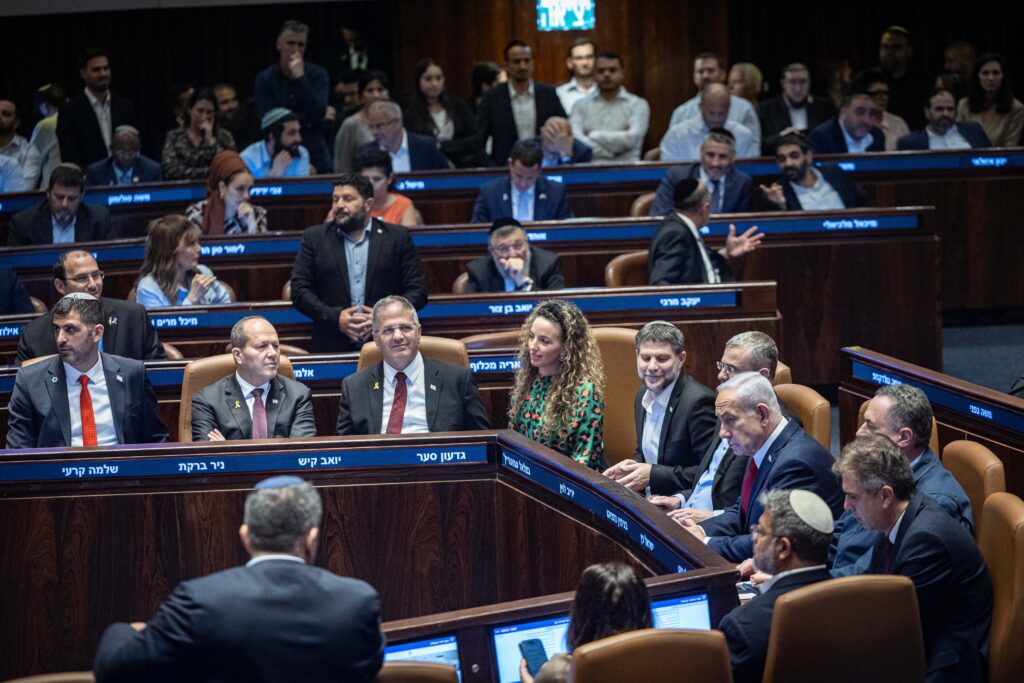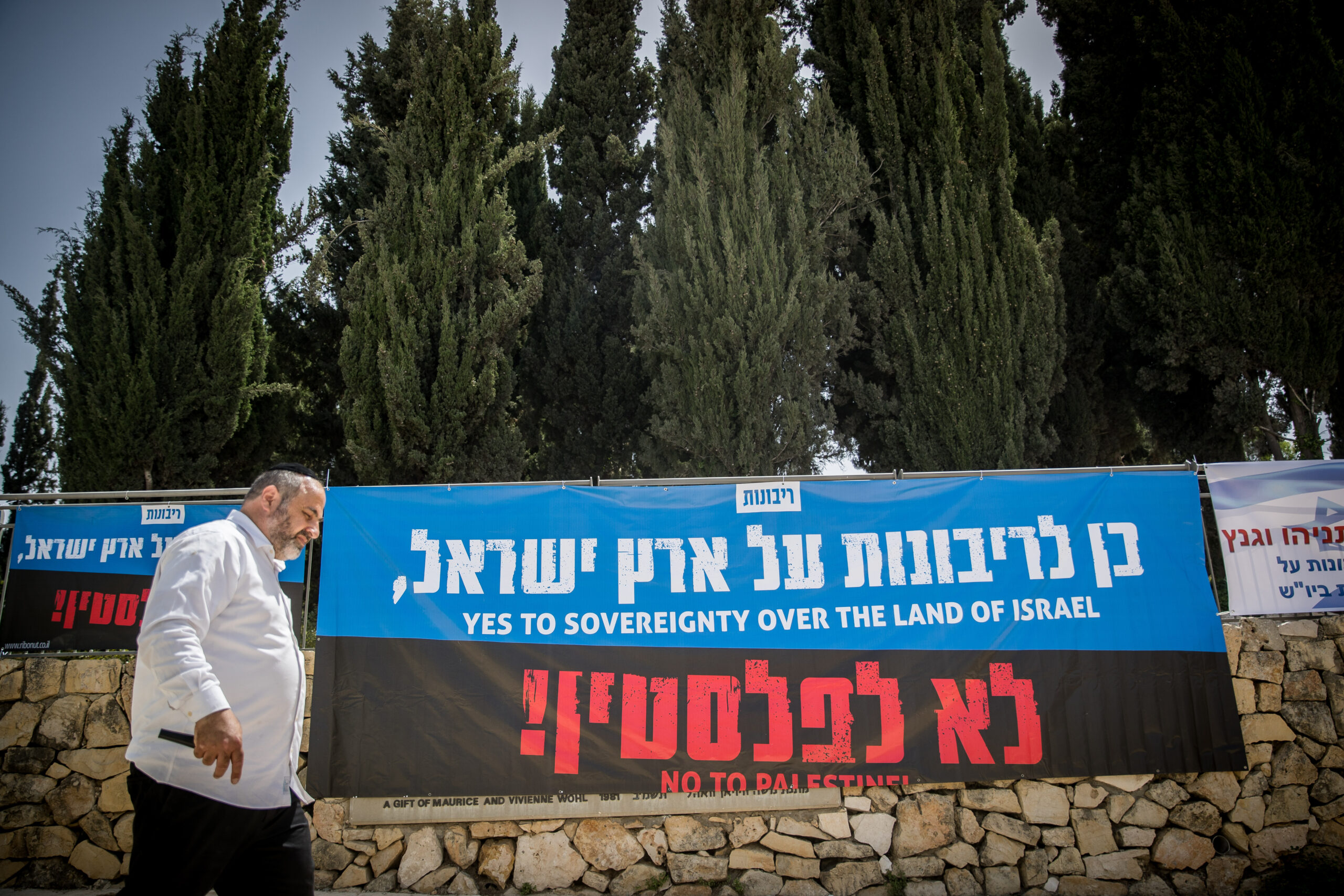Knesset Makes Historic Move Toward Sovereignty in Judea and Samaria
In a landmark decision on July 23, 2025, the Israeli Knesset passed a powerful resolution supporting the application of Israeli sovereignty over Judea, Samaria, and the Jordan Valley. The vote — 71 in favor and only 13 opposed — marked the first official endorsement of such a move since the aftermath of the Six-Day War in 1967.
This decisive parliamentary act, backed by Prime Minister Benjamin Netanyahu and supported by members from both coalition and opposition parties, signals a transformative moment in Israeli policy. It’s not just symbolic. The resolution urges the government to take swift and concrete steps to implement full Israeli law, jurisdiction, and administration over Jewish communities across the contested territories.
A Broad Coalition, a Shared Vision
The initiative was led by Knesset members Simcha Rothman, Oded Forer, Dan Illouz, and Limor Son Har-Melech. Behind the scenes, the Yesha Council, under the leadership of Yisrael Ganz, Governor of the Binyamin Regional Council, played a pivotal role in building consensus and lobbying for the resolution.

Ganz emphasized the national significance of the vote:
“The approval by a large majority of Zionist MKs proves the broad support of the people of Israel for Israeli sovereignty in Judea and Samaria. This vote is a significant milestone… We must not miss this opportunity.”
The vote came just days after the Knesset had already made its opposition to the establishment of a Palestinian state west of the Jordan River official policy, further clarifying Israel’s strategic direction.
The Full Resolution: Anchored in History and Purpose
At the heart of the move lies a comprehensive and passionately worded resolution. Below is the official text as passed by the Knesset:
Knesset Resolution — 27th of Tammuz, 5785 / July 23, 2025
The preamble of this resolution is an integral part of the resolution.
Preamble
Judea, Samaria, and the Jordan Valley are an inseparable part of the Land of Israel — the historic, cultural, and spiritual homeland of the Jewish people.
Centuries and millennia before the establishment of the modern State, the forefathers and prophets of the nation lived and acted in these regions. Here, the foundations of Jewish faith and culture were laid. Cities like Hebron, Shechem (Nablus), Shiloh, and Beit El are not merely historical sites — they are living expressions of the continuous Jewish presence in the Land.
Sovereignty in Judea and Samaria is an inseparable component of the fulfillment of Zionism and the national vision of the Jewish people’s return to its homeland.
The Shmini Atzeret Massacre of October 7, 2023, proved that the establishment of a Palestinian state poses an existential threat to Israel, its citizens, and the entire region.
In its decision of 12th of Tammuz 5784 (July 18, 2024), the Knesset declared its opposition to the establishment of a Palestinian state west of the Jordan River, affirming that such a state would endanger Israel and its citizens, perpetuate the Israeli-Palestinian conflict, and destabilize the region. This resolution removed the idea of a Palestinian state from the national agenda.

Resolution
The Knesset affirms that the State of Israel has the natural, historical, and legal right to the entire Land of Israel, the historic homeland of the Jewish people.
The Knesset calls upon the Government of Israel to act promptly to apply sovereignty — Israeli law, jurisdiction, and administration — to all Jewish communities, in all their forms, throughout Judea, Samaria, and the Jordan Valley.
This action will strengthen Israel and its security and prevent any challenge to the basic right of the Jewish people to peace and security in their homeland.
In the name of the Hebrew nation dwelling in Zion, we call upon our friends around the world to stand alongside the return to Zion and the vision of the prophets, and to support the State of Israel in its natural, historical, and legal right to the Land of Israel, and in the application of sovereignty.
Regavim and the Sovereignty Movement Respond
The move drew enthusiastic responses from advocacy organizations. The Regavim Movement applauded the Knesset for correcting what it called a “longstanding injustice,” pointing out the poignant timing during the Three Weeks — a period of Jewish mourning for the loss of ancient sovereignty.
“Today’s vote compels us, as a nation, to assume full responsibility for our destiny… Sovereignty is not rhetoric. It means real action: governance, law enforcement, development, and infrastructure,” Regavim stated. The movement emphasized that sovereignty must now move from declaration to implementation.
The Sovereignty Movement, led by Yehudit Katsover and Nadia Matar, echoed this sentiment.
“Now is the time for action,” they declared. “Years of thought, statements, and rallies have ripened into this historic parliamentary step. Leaders of Israel — it is in your hands!”
A Turning Point in Zionist History
This resolution is not merely a political maneuver. It is an ideological and national statement — a call to fulfill the Zionist vision and assert Jewish rights over what many see as the heartland of biblical Israel.
As articulated in the resolution itself:
“The State of Israel has the natural, historical, and legal right to the entire Land of Israel… We call upon our friends around the world to stand with us in realizing this vision.”
The declaration represents a bold step forward — not just toward changing maps, but toward reshaping Israel’s national identity, security strategy, and vision for the future. Whether or not the government follows through with swift implementation, July 23, 2025 will be remembered as a pivotal day in Israel’s ongoing journey to define its borders, its destiny, and its role in the region.





